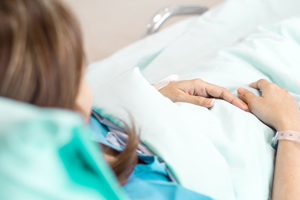Philadelphia Medical Product Liability Lawyers: FDA Approved Medical Device Essure
April 11, 2016
 After lawmakers called for the U.S. Food and Drug Administration (FDA) to ban the use of Essure, the FDA has stated that it will require a new “black box warning” label for the medical device. Essure is a permanent contraceptive device that is implanted in a woman’s fallopian tubes. When used as directed, scar tissue is supposed to form around the device to prevent sperm from reaching eggs to fertilize them. More than 5,000 women have filed complaints with the FDA between 2002 and 2015, complaining that they have suffered unintended pregnancies, miscarriages, stillbirths, severe pain and bleeding as a result of having the device implanted.
After lawmakers called for the U.S. Food and Drug Administration (FDA) to ban the use of Essure, the FDA has stated that it will require a new “black box warning” label for the medical device. Essure is a permanent contraceptive device that is implanted in a woman’s fallopian tubes. When used as directed, scar tissue is supposed to form around the device to prevent sperm from reaching eggs to fertilize them. More than 5,000 women have filed complaints with the FDA between 2002 and 2015, complaining that they have suffered unintended pregnancies, miscarriages, stillbirths, severe pain and bleeding as a result of having the device implanted.
The FDA approved Essure in 2002. After receiving numerous complaints over the past decade, the FDA has called upon Essure’s manufacturer, Bayer, to study risks of the device and determine how to prevent them. The manufacturer has been directed to study 2,000 women over a three-year period, and submit interim reports to the agency. Bayer maintains that the benefits of its contraceptive device outweigh any potential risks.
Women who claim Essure is a defective medical device and were allegedly harmed are outraged that the FDA is seemingly allowing Essure to remain on the market. Congressman Mike Fitzpatrick (R-Pennsylvania), has called for the FDA to revoke its approval of Essure. Fitzpatrick has vowed to prevent government agencies such as the U.S. Department of Veterans Affairs from purchasing the device. He has also expressed plans to lift civil liability protections that shield Bayer from liability.
In addition to a black box warning and the recommended study, the FDA now requires that patients and their doctors sign a “patient decision checklist” prior to having the device implanted. This includes an agreement that patients will follow up with their physicians for regular testing to ensure that the device is working properly. Bayer contends that the reported problems are a result of patients not using the device as intended, by not using back-up birth control the first three months, or failing to have the device checked regularly by their physicians.
Philadelphia Defective Medical Device Lawyers at Galfand Berger, LLP Represent Victims Injured by Dangerous Devices
If you or someone you know has been injured as a result of having an Essure device implanted, the experienced Philadelphia defective medical device lawyers at Galfand Berger, LLP are poised to help. With offices located in Philadelphia, Reading and Bethlehem, we represent clients throughout Pennsylvania and New Jersey. To schedule a consultation, call us at 800-222-8792 or contact us online today.
 Google Screened
Google Screened
